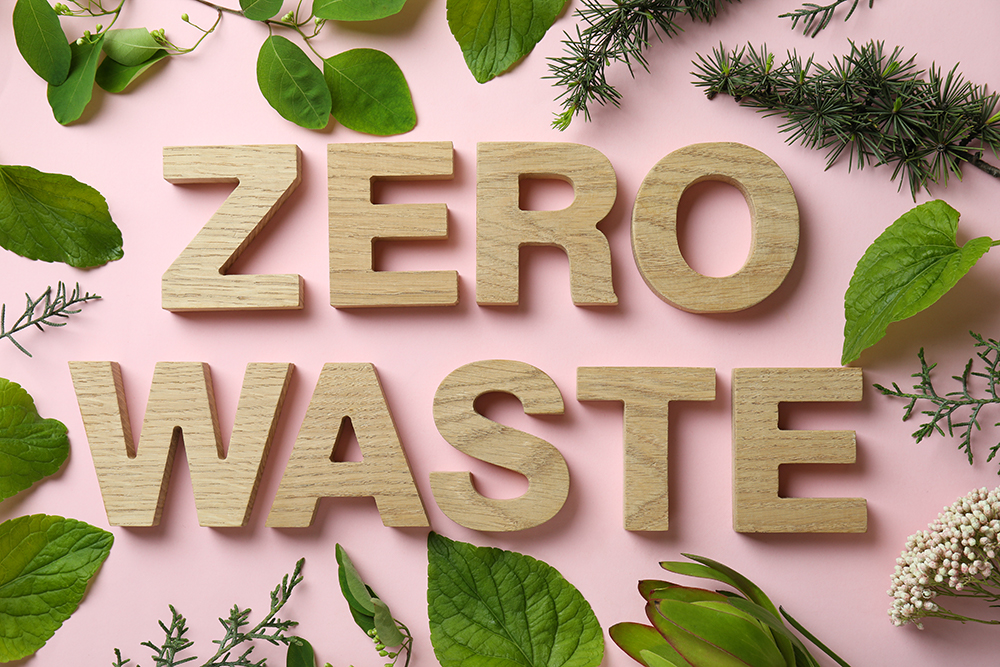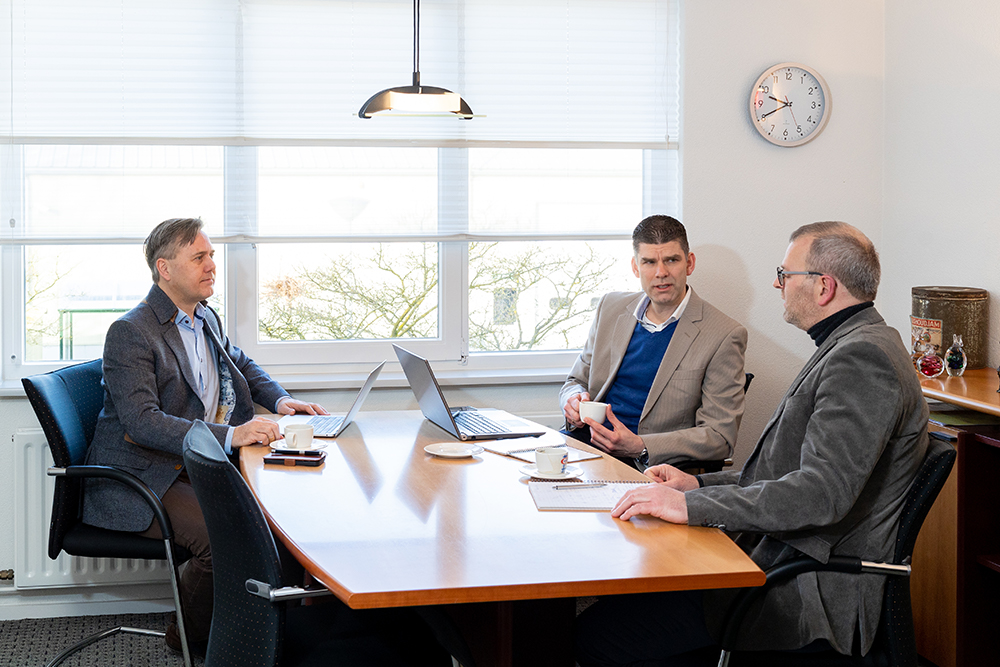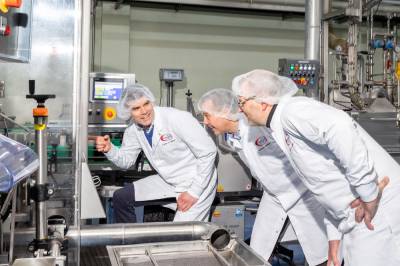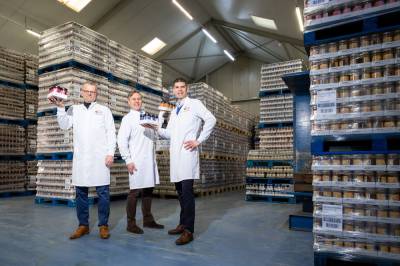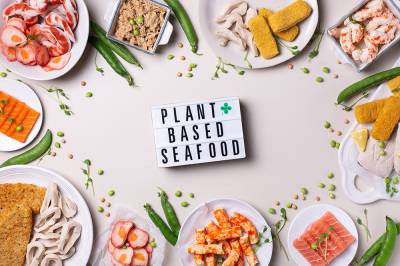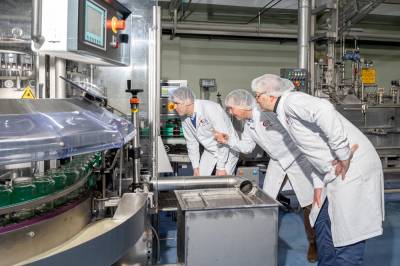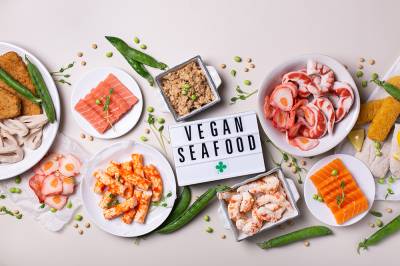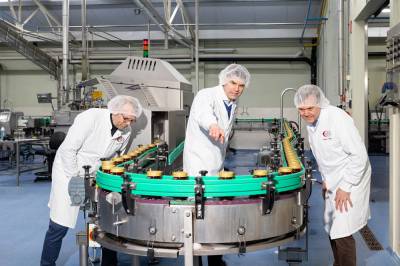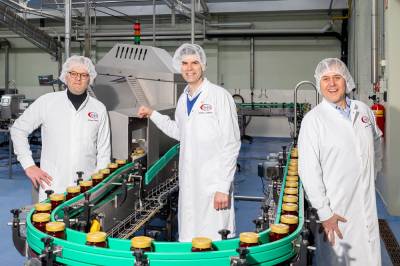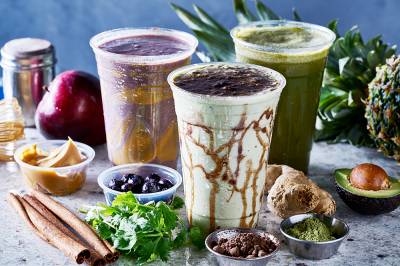






Waste Valorization: Transforming Challenges into Opportunities
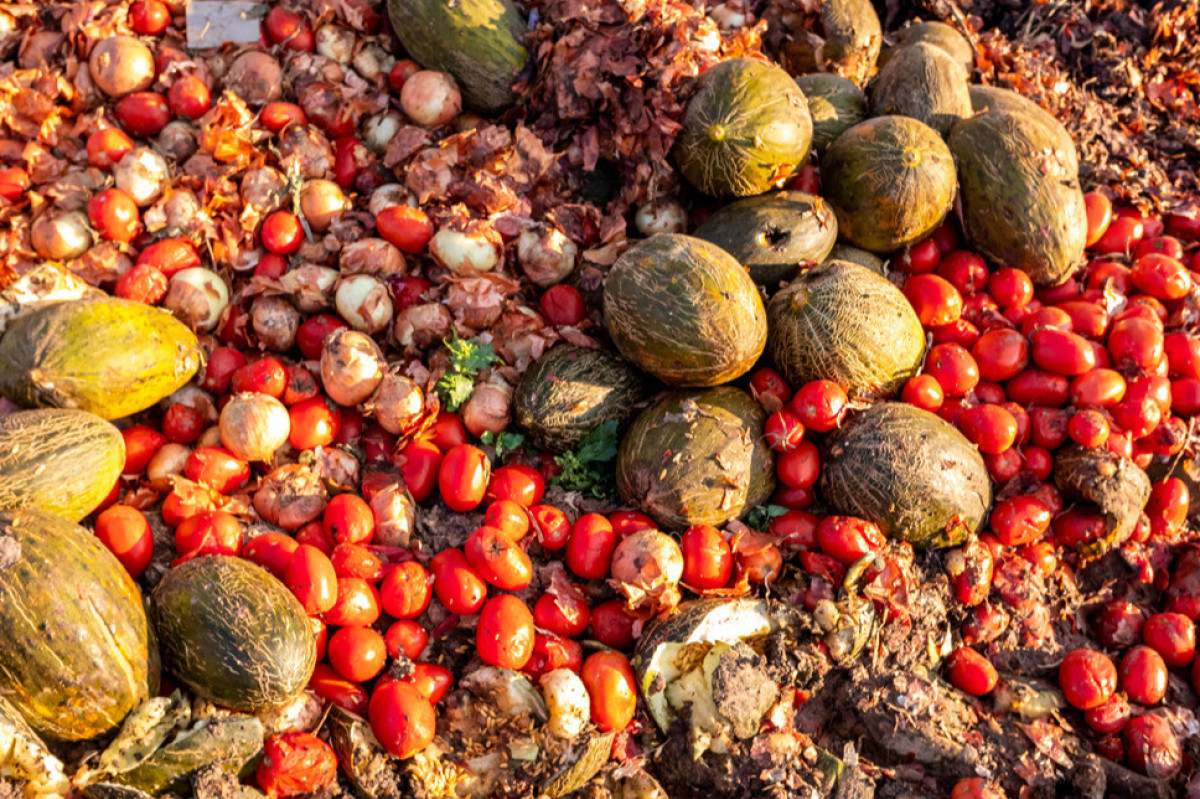
In the contemporary landscape of the food industry, waste valorization has emerged as a pivotal trend, addressing critical environmental and economic challenges. This phenomenon involves transforming waste streams - food scraps, peels, pulp, and byproducts from processing - into valuable and usable products. The significance of waste valorization extends far beyond mere waste management; it represents a paradigm shift towards sustainable and efficient resource utilization.
The Four Pillars of Waste Valorization
- Environmental Sustainability: The food industry is one of the largest producers of waste. Waste valorization combats this issue by recycling waste into valuable products, thereby reducing the industry's ecological footprint and dependence on new resources.
- Resource Efficiency: By reprocessing waste into useful materials, the food industry not only conserves natural resources but also aligns itself with global movements towards a circular economy, where every byproduct is a resource for another process.
- Economic Opportunities: Valorization opens new avenues for revenue generation within the food industry. This process not only involves recycling but also the creation of new products and markets, offering financial benefits alongside environmental ones.
- Product Innovation: This aspect of waste valorization is particularly exciting. It leads to the creation of innovative products such as specialized food ingredients, animal feeds, bioplastics, and even renewable energy sources, broadening the scope and appeal of the food industry.
Driving Forces Behind the Rise of Waste Valorization
- Regulatory Pressures: Increasingly, governments and environmental organizations are mandating reductions in waste and promoting sustainable practices. Such regulations are catalyzing the adoption of waste valorization strategies.
- Consumer Awareness: The modern consumer is more environmentally conscious and demands sustainable practices from food producers. This shift in consumer behavior is a significant driver for the adoption of waste valorization.
- Technological Advancements: Recent innovations in processing and extraction techniques have made the valorization of a broader range of waste streams feasible, creating new opportunities for the industry.
Strategic Implications for Food Manufacturers
- Competitive Advantage: By integrating waste valorization into their operations, manufacturers can distinguish themselves in the market, showcasing their commitment to sustainability.
- Cost-Efficiency: Valorization can significantly reduce waste disposal costs while generating revenue from new products, creating a double financial benefit.
- Sustainability Profile: Embracing this practice enhances a company's reputation as an environmentally responsible entity, attracting customers who prioritize eco-friendly products.
- Innovation and Growth: Waste valorization is not just a waste management strategy; it's a catalyst for innovation, opening doors to new products and markets.
Waste valorization is more than a trend; it's a necessity and opportunity in today's food industry. Driven by environmental, economic, and consumer factors, it's a strategy that food manufacturers must adopt for long-term sustainability and success. This transformative approach not only addresses the pressing issue of waste but also creates a win-win situation for the environment, the economy, and the consumers.
Addressing Complexities and Common Misconceptions
Waste valorization, while beneficial, is not without its complexities and misconceptions. Here are some key points to understand:
- Not Just Recycling: Valorization goes beyond traditional recycling. It's about creating value - whether in the form of new products, energy, or materials.
- Investment and Innovation: While it requires initial investment, the long-term gains in terms of sustainability and economic benefits are substantial.
- Market-Driven: Success in valorization depends on market demand for the valorized products. It's crucial to align products with market needs and trends.
- Regulatory Compliance: Companies must navigate and comply with various environmental regulations, which can be complex but are essential for sustainable operations.
- Collaborative Effort: Successful valorization often requires collaboration across different sectors and disciplines, pooling expertise from various fields.
By understanding these nuances, companies can effectively integrate waste valorization into their business models, turning waste into an asset rather than a liability.
Common Mistakes in Waste Valorization: A Manufacturer's Guide
Waste valorization, while a promising strategy in the food industry, can be fraught with challenges and blunders. It's essential for manufacturers to be aware of these common pitfalls to ensure successful implementation. Here’s a list of typical mistakes and how they can impact waste valorization efforts:
1. Underestimating Costs and Complexity
- Significant Investments Required: Valorization demands substantial initial investments in infrastructure, equipment, and expertise.
- Business Plan Integration: Failing to incorporate these costs into business plans can lead to financial strain and project setbacks.
2. Over-Focusing on Financial Returns
- Broader Benefits: While additional revenue is a plus, the environmental and societal benefits are equally important.
- Sustainable Practices: A profit-only focus may neglect the long-term value and responsibility of sustainable operations.
3. Ignoring Market Demand
- Market Research: Success depends on there being a demand for the products derived from valorization.
- Demand Assessment: Neglecting to evaluate market interest can result in unsuccessful investments and initiatives.
4. Overlooking Scalability and Adaptability
- Variability in Waste Streams: Waste quantities and qualities can significantly vary.
- Flexible Processes: Processes need to be scalable and adaptable to these changes to ensure efficient and sustainable utilization.
5. Lack of Integration with Existing Operations
- Seamless Incorporation: Valorization should be integrated with current operations to avoid disruptions.
- Coordinated Planning: Requires meticulous planning and coordination to maximize efficiency and effectiveness.
6. Neglecting Regulatory Compliance
- Regulated Material Handling: Waste valorization can involve hazardous materials.
- Compliance Is Key: Ensuring adherence to regulations is crucial to avoid safety hazards and legal issues.
7. Undervaluing Partnerships and Collaboration
- Collaborative Efforts: Valorization often requires joint efforts with various stakeholders.
- Benefits of Collaboration: Partnerships can lead to enhanced innovation, reduced costs, and overall success in valorization projects.
8. Failing to Set Clear Goals and Metrics
- Importance of Clear Objectives: Without set goals and metrics, measuring success becomes challenging.
- Tracking Performance: Key performance indicators (KPIs) related to cost savings, revenue, environmental impact, and societal benefits are essential for effective evaluation.
Our Solution: FoodFlow Method Applied to Waste Valorization
The FoodFlow Method
Discover the power of the FoodFlow Method - a revolutionary approach that transforms your food production. With this innovative method you optimize your processes, increase efficiency and achieve impressive results.

Brand / scaleup
Manufacturer
Curious about how the FoodFlow Method can lead your company to success? Download our whitepaper and discover the method behind this groundbreaking concept.
Cibus Nexum offers a unique and innovative solution to waste valorization challenges through its FoodFlow Method. This method, specifically tailored to tackle the intricacies of waste valorization, encompasses a comprehensive, four-stage process: Design, Find, Onboard, and Launch. Here’s how it addresses and transforms the common pitfalls associated with waste valorization:
1. Design Stage: Establishing Clear Objectives
- Understanding Waste Valorization Needs: This stage involves an in-depth understanding of your specific waste valorization requirements, including the types of waste streams, desired end products, and sustainability goals.
- Crafting a Comprehensive Plan: Develop a plan that aligns with your brand’s values and targets, setting a solid foundation for the valorization journey.
2. Find Stage: Identifying Right Partners and Technologies
- Leveraging Extensive Networks: Utilize Cibus Nexum’s vast network to identify potential partners and technologies that specialize in waste valorization.
- Curating a List of Solutions: Select solutions that are not only technically viable but also economically feasible and environmentally sustainable.
3. Onboad Stage: Ensuring Compatibility and Compliance
- Thorough Vetting for Compliance: Ensure that chosen solutions and partners comply with regulatory standards and align with your company’s sustainability ethos.
- Negotiating and Finalizing Details: Facilitate negotiations to establish clear terms, focusing on efficiency, scalability, and adaptability of the valorization process.
4. Launch Stage: Implementation and Continuous Improvement
- Setting Up for Success: Implement the chosen waste valorization strategy, integrating it seamlessly with existing operations to maximize efficiency and minimize disruptions.
- Monitoring and Refining: Continuously monitor the process, making necessary adjustments to improve efficiency, reduce costs, and enhance sustainability.
Benefits of Applying the FoodFlow Method to Waste Valorization:
- Enhanced Efficiency: Streamlines the process of identifying and implementing the most suitable waste valorization strategies.
- Cost-Effectiveness: By meticulously selecting partners and technologies, the FoodFlow Method ensures that investments in valorization are economically viable.
- Sustainability Focus: Aligns with environmental goals, enhancing your company’s sustainability profile and market appeal.
- Scalability and Flexibility: Adapts to varying waste streams and production scales, accommodating future growth and changes.
- Compliance and Quality Assurance: Ensures regulatory compliance and maintains high standards of quality and safety in the valorization process.
- Innovation and Market Competitiveness: Encourages innovation, leading to new product development and enhanced competitive edge.
Real-World Success Stories
Note to Readers
The following case studies are based on real scenarios where Cibus Nexum's FoodFlow Method has been applied. The names of the companies have been anonymized to maintain confidentiality and respect our clients' privacy.
Case study 1: Tofu Producer's Side-Stream Challenge
Background
A renowned tofu producer faced a significant issue with their production side-stream, which included whey and okara. This mixture was stored in a tank and collected weekly by a livestock feed dealer, who then sold it to local pig farmers. However, occasionally, the batch would spoil, often after delivery to the farmer. Such incidents led to reluctance from farmers to continue purchasing the feed, escalating the problem for the tofu producer.
Challenge
The primary challenge was the uncontrolled natural fermentation process in the side-stream, occasionally dominated by harmful bacteria, leading to spoilage.
Cibus Nexum's Intervention
An expert from Cibus Nexum was brought in to address this issue. They identified that while natural fermentation was a usual process preventing spoilage, its uncontrolled nature led to these periodic failures.
Solution and Outcome
By implementing a series of simple yet effective measures, Cibus Nexum stabilized the fermentation process. This intervention involved adjusting storage conditions and introducing controlled fermentation practices to ensure consistency and prevent spoilage. As a result, the side-stream became stable, and the issue was resolved within a few months, restoring the tofu producer's relationship with their livestock feed clients.
Case Study 2: Juice Manufacturer's Pulp Valorization
Background: a mid-sized juice manufacturing company, 'JuiceJoy', facing challenges with the disposal of fruit pulp, a byproduct of their juice extraction process. This pulp represented a significant portion of their waste and posed both environmental and financial burdens.
Challenge
JuiceJoy sought to find a sustainable and economically beneficial method to valorize their fruit pulp waste, aligning with their commitment to environmental responsibility and cost-efficiency.
Cibus Nexum's Approach
The company approached Cibus Nexum to find a solution. Utilizing the FoodFlow Method, Cibus Nexum first identified JuiceJoy's specific needs and potential opportunities for the fruit pulp.
Solution
Through the 'Find' and 'Onboard' stages, Cibus Nexum identified a partner specializing in the conversion of fruit pulp into high-fiber food ingredients. This partnership enabled JuiceJoy to transform their waste into a valuable product, which was then sold to food manufacturers as a nutritious additive for baked goods and snacks.
Outcome
This initiative not only significantly reduced JuiceJoy's waste disposal costs but also opened a new revenue stream. The company gained recognition for its innovative and sustainable approach, enhancing its brand image and market competitiveness. Moreover, this venture into waste valorization positioned JuiceJoy as a leader in sustainable practices within the juice manufacturing industry.
Case Study 3: Transforming a High-Value Fat and Powder Producer
Company Overview
A specialized producer of high-value fats and powders based on tropical seeds and fruits, this company has built a significant legacy over the last century in valorizing raw materials for food and pharmaceutical applications.
Challenge: Adapting to Legislative Pressures and Market Dynamics
Legislative Pressures: The company faced increasing challenges due to stricter legislative measures, necessitating a reevaluation of their traditional business model.
Asset Utilization: Despite possessing valuable assets, there was a growing need to reshape the business towards a more agile and flexible operation.
Strategic Shift: Towards Agility and Premium Product Positioning
Focus on Premium Products: The strategy involved repositioning existing products and developing new premium offerings.
Expertise in Sourcing: Leveraging their extensive experience in sourcing high-quality raw materials was identified as a key strength.
The Outsourcing Game Changer
Redefining Production: Production was viewed as a means to an end, not the core focus. This perspective shift led to the decision to outsource parts of the processing steps to qualified external parties.
Benefits of Outsourcing: This move aimed to reduce the capital footprint, increase flexibility, enhance margins, and respond to the challenges of rising energy costs and working capital pressures.
Cibus Nexum’s Contribution: Expertise and Strategy Development
Expert Involvement: Cibus Nexum deployed one of its experts with extensive experience in the cocoa industry. This expert undertook a comprehensive analysis of the company’s raw material streams and their transformation into various end products.
Complex Value Chain Mapping: The expert mapped out the complex web of various sources of raw materials and the multitude of processing techniques used to extract diverse substances for different industries, from food to pharmaceuticals and cosmetics. A notable example includes the production of cocoa butter, a valuable ingredient in the cosmetics industry, contingent on meeting stringent quality standards.
Identifying External Partners: Cibus Nexum’s expert identified several external parties and outlined a strategy to transition towards an optimized, outsourced future.
Strategic Outsourcing for Sustainability and Profitability: The strategy was designed to ensure the company’s successful and profitable continuity, reducing reliance on owned assets while maximizing external partnerships.
Progress and Outlook
Advanced Stage of Implementation: The company, with Cibus Nexum's guidance, is now in an advanced stage of executing this strategy. The transition towards outsourcing and focus on premium product development is poised to redefine the company’s role in the market, ensuring its continued success in a rapidly evolving landscape.
Conclusion
This case study exemplifies how Cibus Nexum’s strategic insight and industry expertise can guide a traditional company through a transformative process, adapting to new market realities and legislative demands while capitalizing on its inherent strengths. The shift towards agility, premium product development, and strategic outsourcing marks a significant step towards sustainable growth and profitability in the competitive food and pharmaceutical ingredients sector.
Why choose us, Expertise and Experience of Cibus Nexum
Cibus Nexum stands as a beacon of expertise and experience in the food industry, underpinned by a rich history and a proven track record of success. Here’s a deeper look into the company’s credentials:
A Legacy of Excellence in the Food Industry
- Extensive Industry Experience: With over 75 years of cumulative experience, Cibus Nexum brings a wealth of knowledge and insights to the food industry. This extensive experience is a testament to the company's deep understanding of the industry's nuances and complexities.
- Impressive Track Record: Cibus Nexum has successfully facilitated more than 500 matches between clients and suppliers. This achievement highlights the company’s ability to understand and meet the diverse needs of its clients, ensuring successful collaborations that drive mutual growth and innovation.
Unparalleled Expertise
- Blend of Innovation and Operational Efficiency: At the heart of Cibus Nexum's success is a unique blend of innovative thinking and operational efficiency. This combination ensures that the company not only ideates but also effectively implements solutions that are both creative and practical.
- Commitment to Client Satisfaction: Cibus Nexum’s approach is deeply client-centric, with a steadfast commitment to delivering satisfaction and value to each client. This commitment is reflected in the long-standing relationships the company has nurtured with clients across various segments of the food industry.
- Team of Industry Veterans: The team at Cibus Nexum is composed of seasoned experts, each bringing their specialized knowledge and skills. This team is the driving force behind the company's innovative solutions and successful client engagements. Detailed profiles and accomplishments of team members can be explored on the Cibus Nexum Team Page, providing transparency and insight into the depth of expertise available to clients.
- Innovation in Sustainability and Efficiency: A key aspect of Cibus Nexum’s expertise is its focus on sustainability and efficiency. The company has been at the forefront of integrating sustainable practices into its solutions, addressing the growing demand for environmentally responsible operations in the food industry.
- Adaptability and Forward-Thinking: Cibus Nexum has consistently demonstrated its ability to adapt to the ever-changing landscape of the food industry. The company’s forward-thinking approach ensures that clients are not just keeping pace with current trends but are also prepared for future developments and challenges.
The expertise and experience of Cibus Nexum in the food industry make it a reliable and trusted partner for businesses looking to innovate, grow, and succeed. The company’s impressive track record, combined with its team of experts, positions it uniquely to address the diverse challenges of the food industry while driving sustainable and efficient solutions. For businesses seeking a partner with a deep understanding of the food industry and a commitment to excellence, Cibus Nexum represents an ideal choice.
Risks of a Non-Specialized Approach in Food Industry Operations
In the complex and ever-evolving landscape of the food industry, opting for a generalized rather than a specialized approach can pose significant risks and disadvantages. Cibus Nexum's expertise highlights the importance of a tailored strategy. Here’s an exploration of the potential pitfalls of not adhering to such a specialized approach:
Inadequate Market Alignment
- Misreading Consumer Trends and Demands: A non-specialized approach may lack the nuanced understanding necessary to accurately interpret and respond to changing consumer trends and preferences, leading to products that are out of sync with market needs.
- Ineffective Marketing Strategies: Without specialized insights, marketing efforts may fail to resonate with the target audience, resulting in lower engagement and reduced market penetration.
Operational Inefficiencies
- Suboptimal Production Processes: Generalized methods might overlook specific operational efficiencies that could be achieved through a more tailored approach, leading to higher costs and lower productivity.
- Supply Chain Disruptions: A lack of specialization can result in a less robust supply chain, vulnerable to disruptions and unable to adapt quickly to changes or challenges.
Quality and Compliance Risks
- Compromised Product Quality: Without the guidance of a specialized approach, there’s a higher risk of quality issues, which can affect brand reputation and customer loyalty.
- Regulatory Non-Compliance: The food industry is heavily regulated. A non-specialized approach might fail to keep up with the latest compliance requirements, leading to legal challenges and potential fines.
Sustainability Shortcomings
- Environmental Impact: General approaches may not fully integrate sustainable practices, leading to a greater environmental footprint and potential backlash from increasingly eco-conscious consumers.
- Waste Management Issues: Inefficient waste management strategies could result from a lack of specialization, leading to higher operational costs and environmental harm.
Financial Implications
- Increased Costs: A non-specialized approach might incur higher costs due to inefficiencies and the lack of tailored solutions to optimize resource use.
- Missed Opportunities for Growth: By not leveraging specialized expertise, companies might miss out on innovative opportunities for expansion and diversification.
The risks associated with a non-specialized approach in the food industry underscore the importance of Cibus Nexum's specialized services. In an industry characterized by rapid changes, complex regulations, and high consumer expectations, a specialized approach not only mitigates risks but also positions businesses for long-term success and sustainability. Cibus Nexum’s expertise in providing tailored solutions ensures that clients navigate these challenges effectively, maximizing their potential in the dynamic food industry landscape.
Revolutionising Sustainability: Mastering Waste Valorization with Cibus Nexum.
As we reach the culmination of our exploration into the transformative solutions offered by Cibus Nexum, it’s clear that the specialized approach in waste valorization and food industry operations is not just beneficial but essential.
Summarising the Cibus Nexum Advantage:
- Tailored Solutions with the FoodFlow Method: Cibus Nexum’s FoodFlow Method epitomizes customization, ensuring each aspect of food production and waste valorization is aligned with your unique needs and market demands.
- Decades of Expertise and a Proven Track Record: With over 75 years of collective experience and a history of over 500 successful client-supplier matches, Cibus Nexum stands as a testament to excellence and reliability in the food industry.
- Mitigating Risks with Specialized Strategies: Our specialized approach effectively addresses the myriad risks associated with non-specialized methods, from market misalignment to operational inefficiencies and regulatory non-compliance.
- Sustainability and Innovation at the Forefront: Embracing Cibus Nexum’s methods means not only adhering to sustainability principles but also driving innovation in your production processes.
Embrace the Future of Food Industry Excellence with Cibus Nexum
Are you ready to transform your approach to food production and waste valorization? Do you seek a partnership that brings unparalleled expertise, innovation, and tailored solutions to your unique challenges? Cibus Nexum is your gateway to realizing these goals.
- Contact Us Today: Reach out to discover how Cibus Nexum can elevate your operations, reduce environmental impact, and propel your business forward in the competitive food industry landscape.
- Schedule a Consultation: Take the first step towards a partnership that will redefine your production processes. Our team of experts is ready to discuss your needs, offer insights, and outline how our services can be the catalyst for your success.
Don’t let the complexities and fast-paced nature of the food industry hold you back. Embrace the change, innovate, and lead with Cibus Nexum. Contact us now to begin your journey towards operational excellence and sustainability in the food industry.
Cibus Nexum – Where Your Food Production Vision Becomes Reality.
Sign up for the latest tips and that you can put into practice right away.

Call me back request

